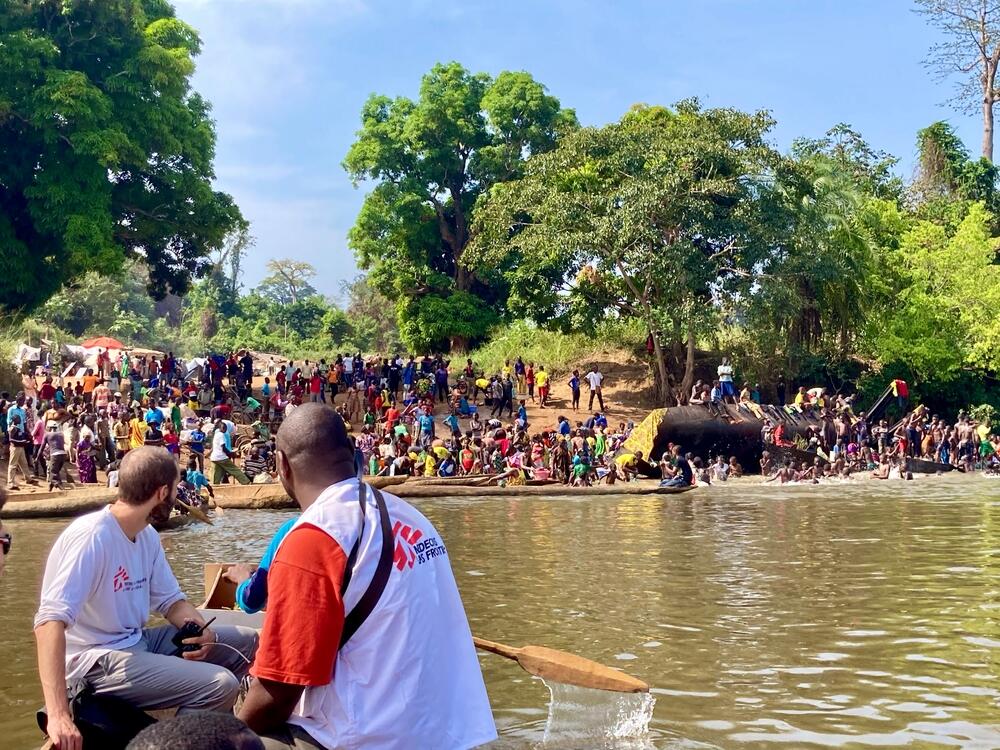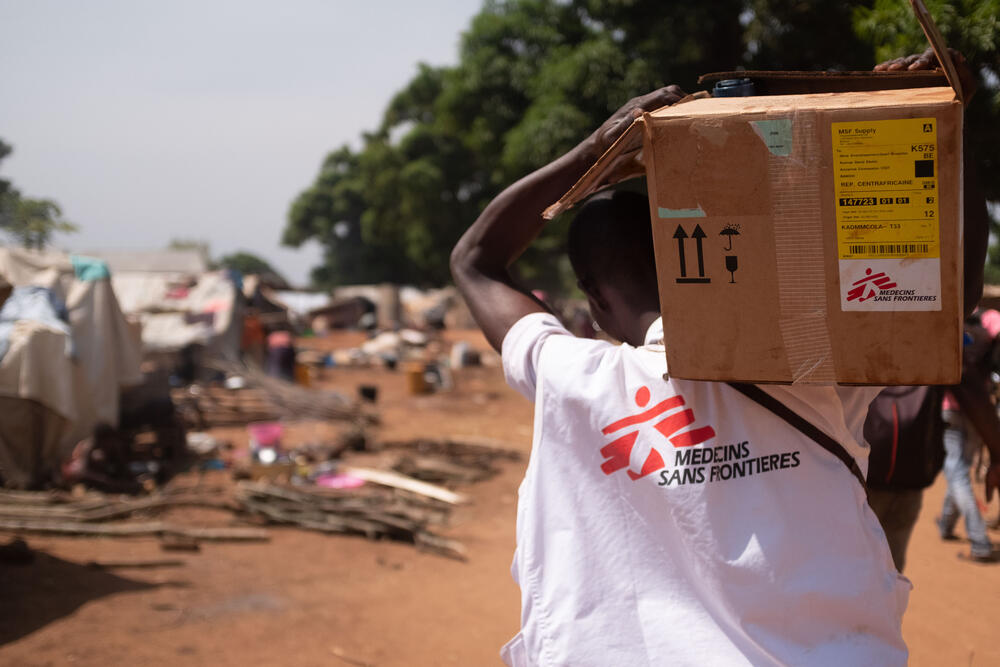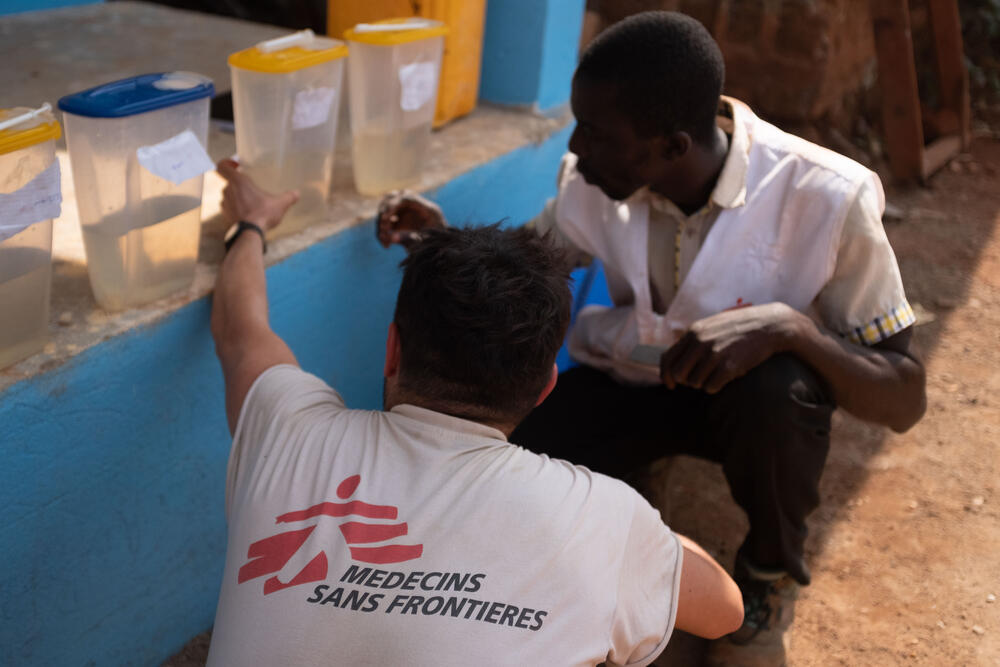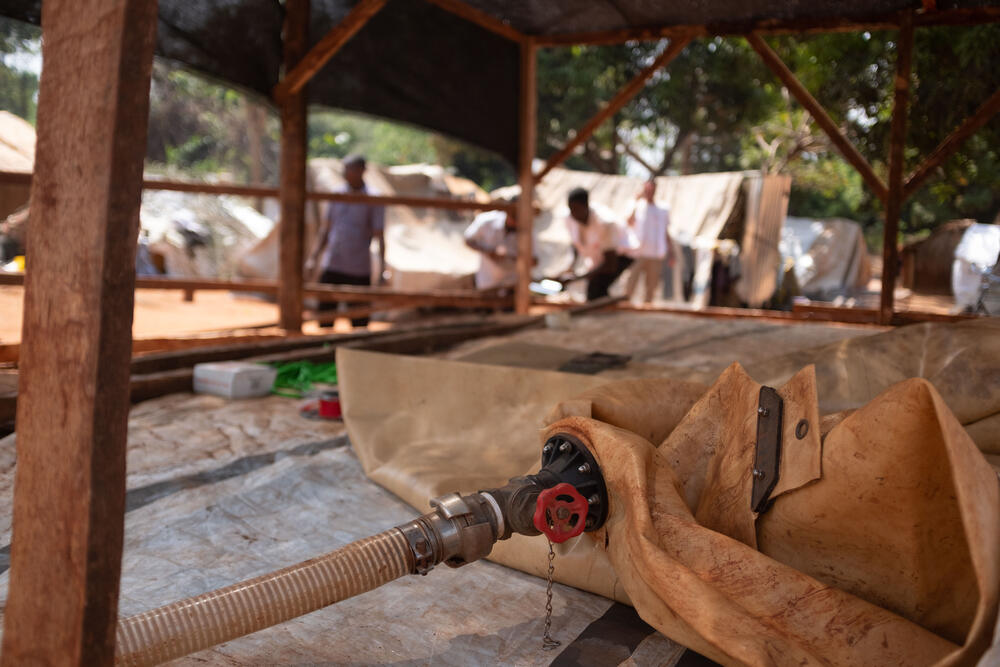Central African Republic: MSF teams ramp up support as violence escalates
The security and humanitarian situation is deteriorating rapidly in Central African Republic, according to reports by MSF teams, as clashes escalate between coalition armed groups and government forces supported by foreign troops, in violence linked to the electoral process.
After numerous offensives in recent weeks across the country, fighting took place on the outskirts of the capital, Bangui, on 13 January. MSF teams in Bangui treated 12 people for violence-related injuries.
Beyond the direct victims of the current violence, people across the country find themselves with reduced access to essential medical services as a result of the growing insecurity.
On 13 January, just 14 pregnant women arrived at Bangui’s Castor maternity hospital, where MSF teams provide emergency obstetric care, compared to a daily average of more than 30.
Responding to needs of displaced people and refugees
Tens of thousands of people have been displaced from their homes by the latest cycle of violence, which started one month ago. Many are living in very precarious conditions, both within Central African Republic and in neighbouring countries.
In the southeast of the country, more than 10,000 people fled Bangassou during an offensive on the city on 3 January and crossed the Mbomou River to find refuge in the village of Ndu, Democratic Republic of Congo.
MSF teams, who have been supporting mother and child healthcare in the local health centre in Ndu since 2017, have been responding to the needs of the displaced people.
“With the massive influx of refugees in Ndu, we immediately increased our support to the health centre by bringing in extra medicines, vaccines and additional staff,” says MSF project coordinator Marco Doneda.

Help us prepare for the next emergency
“The number of medical consultations has exploded, with more than 110 patients seen each day, on average, mainly women and children suffering from for malaria, diarrhoea and respiratory infections.
"In view of the needs, we will continue to increase our medical capacity in the health centre in the coming days, as well as our capacity to respond to potential epidemics by reinforcing routine vaccination.”
As well as providing the refugees with medical care, MSF teams have installed a water purification system which supplies three bladders with river water treated to make it safe for drinking.
“Access to water is crucial to prevent the spread of waterborne diseases,” says Doneda. “Living conditions in Ndu are very poor, with very little access to sanitation.”
Displaced people shelter in MSF hospital
On the Central African side of the Mbomou River, MSF teams are continuing their medical activities at Bangassou regional hospital, supported by MSF since 2014.
On 3 January, the day of the offensive, nearly 800 people – most of them women and children – sought refuge within the hospital grounds, where MSF teams provided them with shelter, clean water and medical care.
“Although the security situation has calmed down relatively in Bangassou, people are still scared and nearly 1,600 people are spending the night in the hospital as we speak,” says Doneda.
“Besides the hospital, other sites for displaced people have sprung up near Bangassou. As some non-governmental organisations are providing support, we are now assessing the need for us to support people there as well.”
For the past four weeks, MSF teams across the country have been treating the wounded and responding to people’s health needs as a result of this new outbreak of violence.
In a country already hard-hit by eight years of civil war, where people live in a situation of chronic medical crisis, the current insecurity is further exacerbating their vulnerability.
As well as MSF’s emergency response, MSF teams continue to provide vital medical care in Bangui, Bambari, Bria, Bangassou, Batangafo, Bossangoa, Boguila, Carnot, Kabo, Paoua and Zemio.
MSF in Central African Republic
Since gaining independence in 1960, the Central African Republic has been plagued by political instability and violence. It remains one of the poorest countries in the world, despite considerable natural resources.
Despite a peace deal signed in February 2019, extreme violence has continued in many regions of the country, exacerbating the already immense humanitarian needs.
Médecins Sans Frontières/Doctors Without Borders (MSF) first began work in Central African Republic in 1997. Our teams run projects for local and displaced communities in eight provinces and in the capital, Bangui, providing primary and emergency care, maternal and paediatric services, trauma surgery and treatment for malaria, HIV and tuberculosis.



